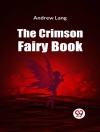James Fenimore Cooper’s ‘Ultimate Collection’ serves as a comprehensive anthology that encapsulates the breadth of his literary genius. Comprising seminal works such as ‘The Last of the Mohicans, ‘ this collection is characterized by Cooper’s keen observation of early American life, his rich storytelling, and his complex characterizations. Set against the backdrop of a young nation grappling with its identity, Cooper’s narratives deftly intertwine adventure, romance, and social commentary, often reflecting the tensions between civilization and the wilderness. His prose is marked by vivid descriptions and a deep psychological insight into his characters, showcasing a literary style that is at once romantic and realistic, establishing him as a precursor to American literature’s exploration of frontier themes. James Fenimore Cooper, born in 1789, grew up in a time of great national transformation in the United States. His experiences living in New York’s frontier regions inspired his fascination with Native American cultures and the complexities of pioneer life. A naval officer by training, Cooper’s deep-seated appreciation for nature and the sea informs many of his narratives, allowing him to construct authentic experiences that resonate through his characters’ journeys. This collection is indispensable for those seeking a deep understanding of early American literary heritage. Readers will find in Cooper’s timeless tales both an adventurous spirit and profound reflections on human nature, making it an essential text for anyone interested in the interplay of history, identity, and storytelling.
Circa l’autore
James Fenimore Cooper (1789-1851) was a preeminent American writer of the early 19th century, whose historical novels have left an indelible mark on American literature. Born in Burlington, New Jersey, and raised in the frontier town of Cooperstown, New York, Cooper’s experiences in these formative landscapes heavily influenced his literary style and thematic focus. A Yale alumnus, he joined the U.S. Navy, an experience that would later imbue his maritime novels with authenticity. Cooper’s literary career commenced with ‘Precaution’ (1820), but he is best known for the Leatherstocking Tales, a series of five novels featuring the iconic frontiersman, Natty Bumppo. These include ‘The Pioneers’ (1823), ‘The Last of the Mohicans’ (1826), which remains his most celebrated work, ‘The Prairie’ (1827), ‘The Pathfinder’ (1840), and ‘The Deerslayer’ (1841). Through these novels, Cooper established and popularized several genres, including the sea story and the wilderness adventure. His naturalistic style and exploration of the American frontier experience contributed to the emerging notion of a unique national identity and literature. His ‘James Fenimore Cooper – Ultimate Collection’ provides an extensive compendium of his works, encompassing his nuanced characterizations and his exploration of themes such as individuality, societal evolution, and cultural conflicts between European settlers and Native Americans. His work attracted both admiration and criticism, with later writers like Mark Twain famously critiquing his prose. Despite such controversy, Cooper’s literary contributions continue to be celebrated for their pioneering role in shaping American narrative tradition.












